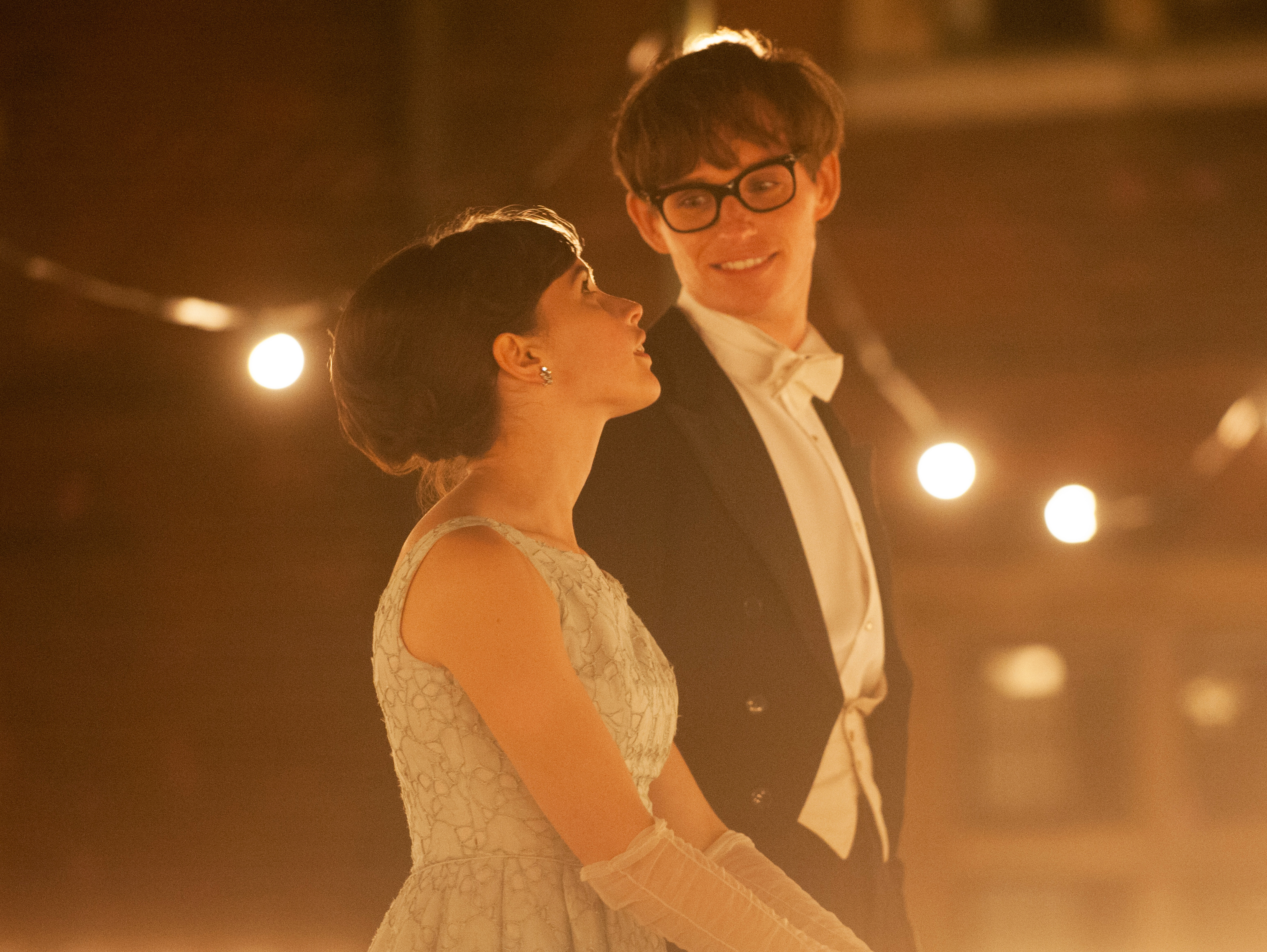The Theory of Everything
Opens Fri., Nov. 14 at Harvard Exit and Lincoln Square. Rated PG-13. 123 minutes.
It is easier to deny God than Hollywood—just ask Stephen Hawking. Everybody’s favorite theoretical physicist now has a biopic devoted to his singular life; not surprisingly, it concentrates less on the information-paradox problem in black holes than on the love life of a man stricken with a debilitating illness.
The Theory of Everything opens with Hawking (played by Les Miz star Eddie Redmayne) as a young nerd at university, where his geeky manner doesn’t entirely derail his ability to woo future wife Jane Wilde (Felicity Jones) or impress supervisor Dennis Sciama (David Thewlis). Hawking is diagnosed with motor neuron disease at age 21 and given a two-year prognosis for survival—one of the film’s sharpest ideas is to allow time to pass, and pass, without pointing out that Hawking is demolishing the expectations for someone with his condition. No wonder “time” is a central concept for Hawking’s work (his bestseller was puckishly titled A Brief History of Time).
The movie is directed by James Marsh, whose offbeat career includes the documentaries Man on Wire and Wisconsin Death Trip as well as fiction films. Perhaps more important, the movie is officially adapted from (now ex-wife) Jane Hawking’s memoir, so the love story has its share of ups and downs. This is where Theory manages to distinguish itself from the usual Oscar bait. Whether dealing with Jane’s closeness to a widowed choirmaster (Charlie Cox) who becomes part of the Hawking family, or Stephen’s chemistry with his speech therapist (Maxine Peake), the film catches a frank, worldly view of the way things happen sometimes. No special villains here—you might say it’s just the way the universe unfolds.
Alas, there is music, and dewy photography, and a few purple passages of dialogue. I suppose a movie can’t be a Designated Academy Award Contender without them. Redmayne’s performance is a fine piece of physical acting, and does suggest some of the playfulness in Hawking’s personality (the man did do a guest voice on The Simpsons, after all). From now until Oscar night, you will not be able to get away from it. Jones, whose 2014 also includes The Amazing Spider-Man 2, is equally good, as she must suggest the loyalty of a heroically patient person but also the weariness of tending the disabled, demanding genius. Especially in the late reels, the two convey a seen-it-all intimacy that suggests the film’s quietist observation: The puzzle of the Big Bang is one thing, but the riddle of marriage is another challenge entirely.
film@seattleweekly.com







